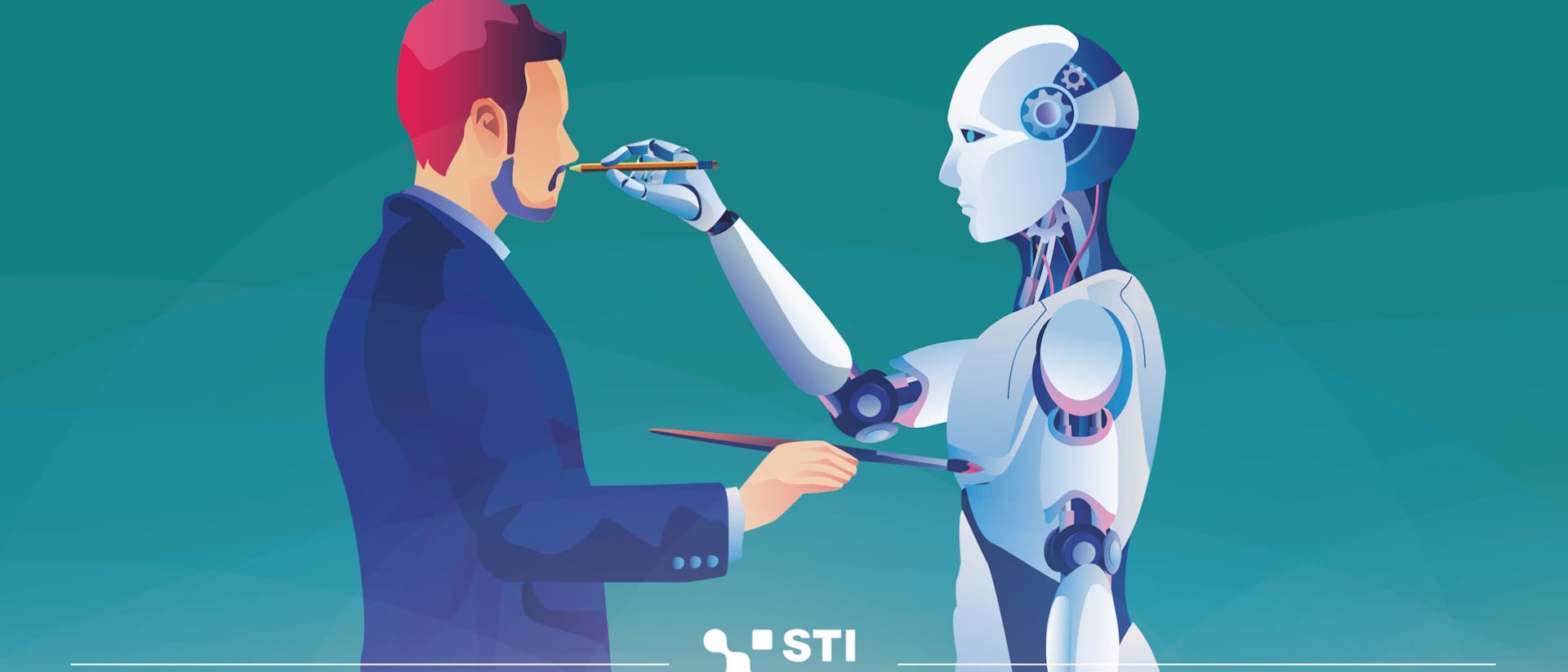
The impact of Artificial Intelligence on the future of work
In STI Corporate we look with curiosity and eager anticipation at the new frontier of Artificial Intelligence (A.I.). We believe that AI, essentially computer systems designed to emulate human tasks like environment sensing, problem-solving, planning, and natural language communication, holds transformative potential for jobs and professions.
While there are concerns about job losses, we believe that it will also create new opportunities and enhance many existing jobs.
More opportunities for work and productivity
A.I. is creating new types of jobs that didn't exist before. A.I. researchers, engineers and developers are in high demand as companies adopt A.I. technologies. Jobs like robot programmers, A.I. ethicists and A.I. user experience designers are emerging. Many existing jobs will also be enhanced by A.I., requiring new skills. For example, doctors can use A.I. to help diagnose diseases and recommend treatment plans, requiring them to learn how to utilize A.I. systems. As A.I. continues to progress, the demand for such jobs is likely to increase significantly.
A.I. promises to increase productivity and economic opportunity. Autonomous vehicles could help reduce traffic and make transportation more efficient. A.I. virtual assistants can help automatically handle basic tasks like scheduling meetings, tracking to-do lists and controlling smart home devices. This could free up time for more meaningful work and opportunities for leisure. Some estimate that it could boost global economic growth by up to 4% by 2035.
Personalized services
A.I. will enable more personalized services that can be tailored to individual needs and preferences. For example, A.I. recommendation systems are getting better at suggesting products, content, and media that match a person's unique interests. A.I. tutoring and educational systems can also adapt to a student's learning needs. These kinds of personalized services will depend on professionals with skills in areas like data analysis, user experience design, and multimedia production. The demand for such roles will likely increase substantially.
While A.I. may significantly transform the job market and many professions, it will also create new opportunities for employment and boost economic productivity and personalized services. The future should be approached with informed optimism. With proper management and planning, A.I. can be developed and applied in a safe, ethical and equitable manner.
Society must provide training programs to help people develop skills relevant to A.I. Investment is also needed in education, career counseling and creating new types of jobs. By proactively addressing concerns such as job losses and rising inequality, the benefits of A.I. can be maximized across many areas of life and society. Overall, it should be embraced for the opportunities it offers but also managed responsibly to build a better future.
A.I. in the Building and Industrial sector
Since we operate in the building and industrial sector, we wanted to explore more on how A.I. can impact these 2 areas.
The implementation of AI technologies in the building and industrial sector can boost efficiency, enhance safety, and lead to substantial cost savings, making it a key driver of innovation and growth.
In the industrial sector, AI has proven to be transformative. It helps improve processes through predictive maintenance, which involves using machine learning algorithms to predict equipment failures before they occur. This leads to minimized downtime, increased efficiency, and reduced costs for repairs and replacements. Furthermore, these systems can analyze large volumes of data in real-time, allowing for the optimization of production lines, reduction of waste, and improved quality control. AI also brings a new level of sophistication to robotics used in industrial settings. Advanced AI algorithms enable robots to learn and adapt to new tasks, greatly enhancing their utility and functionality. This, in turn, accelerates production processes and can even lead to safer work environments by automating potentially hazardous tasks.
In the building sector, it has the potential to redefine traditional construction processes. From designing to the final construction stages, AI algorithms can significantly improve efficiency and accuracy. For instance, using AI in architectural design can help predict and optimize the performance of buildings, considering factors like energy usage and environmental impact.
AI also plays a crucial role in managing and maintaining buildings post-construction. Smart building technologycan manage various systems such as heating, ventilation, and air conditioning (HVAC), lighting, and security. By analyzing data from these systems, it can optimize energy use, reduce costs, and improve the comfort and safety of the building's occupants.
A.I. and STI Corporate
To sum it up, AI promises to have a substantial impact on jobs and professions, and STI Corporate is ready to ride this transformative wave. We are preparing to leverage the economic opportunities and personalized services that A.I. enables. By investing strategically in education, skills training, and job creation, we aim to be at the forefront of the A.I. revolution and guide our workforce towards new paths of prosperity. We believe that with prudent management and oversight, it can enrich and empower the human experience for generations to come. The future is bright, and STI Corporate is prepared to evolve.